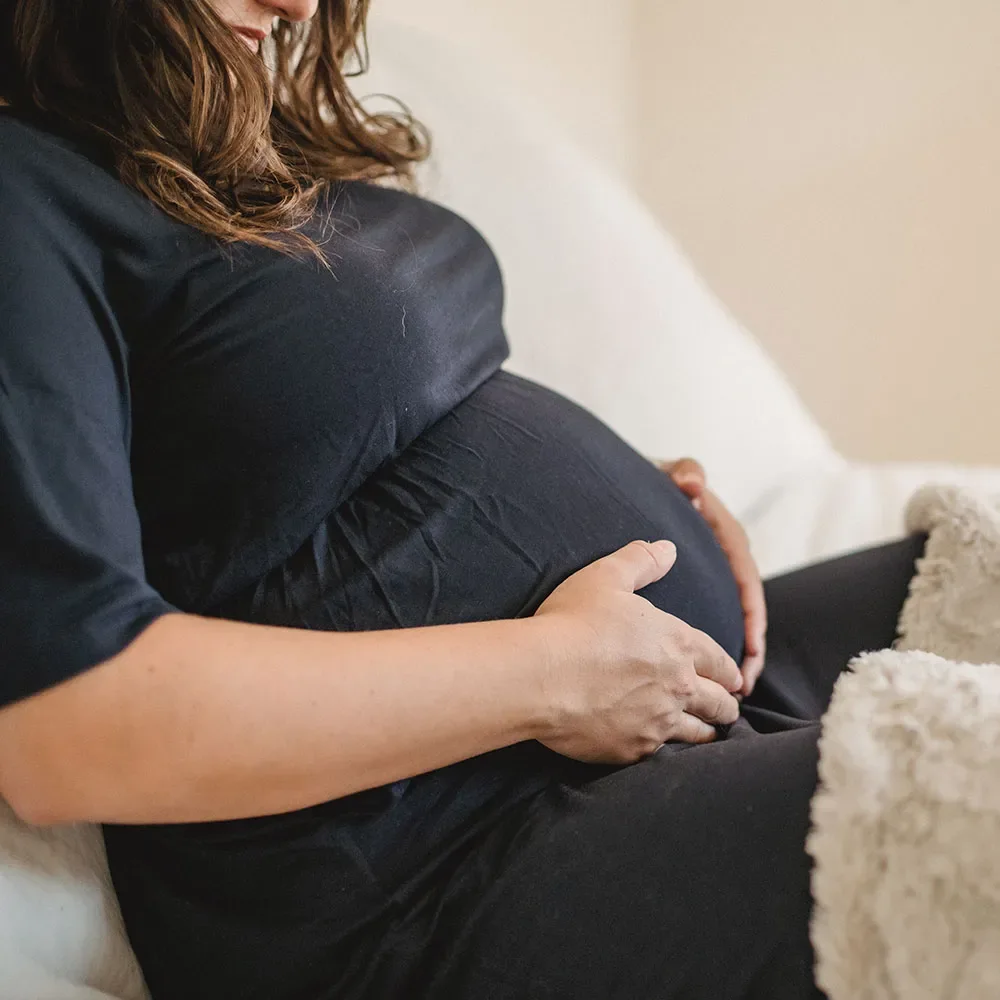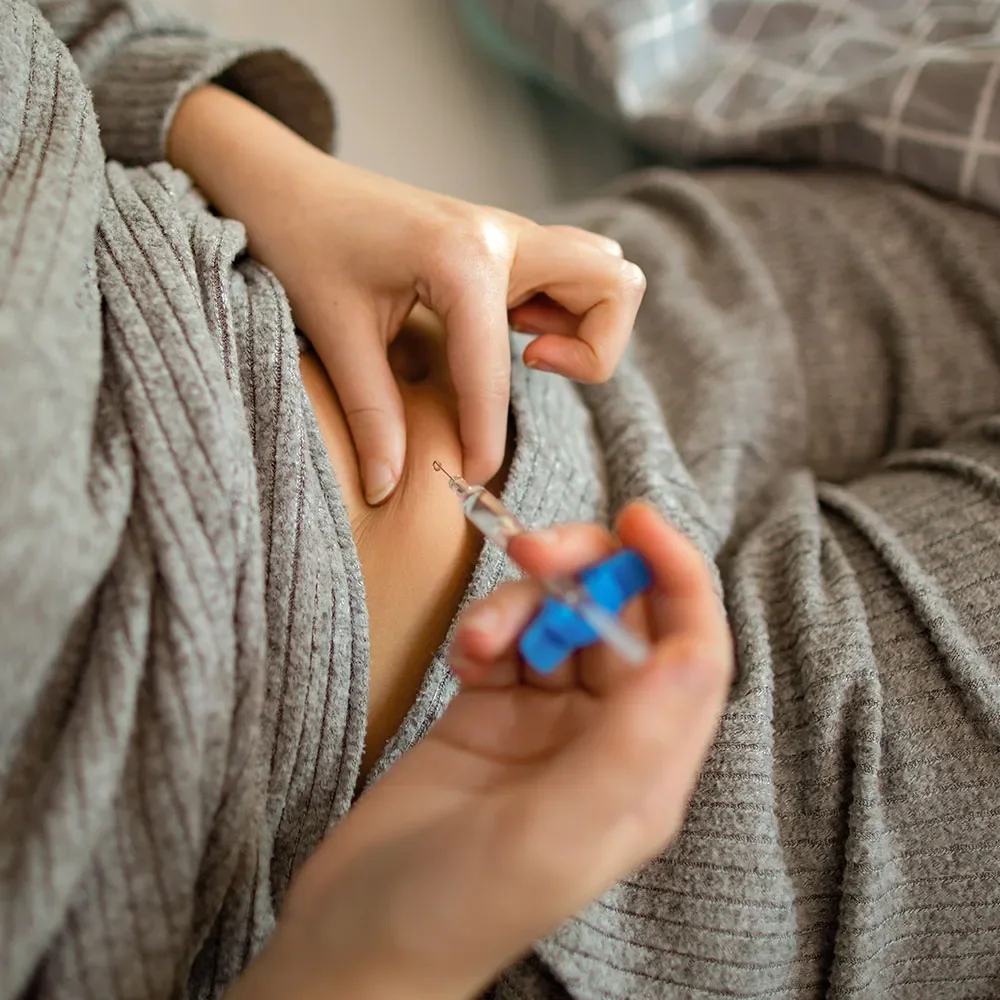Here's what we'll cover
Here's what we'll cover
Here's what we'll cover
Once upon a time, we weren’t quite as concerned with whether the tickle in our throat or that nagging cough was the flu or just a plain old cold, but in the era of COVID-19, it can be important to figure out what you’ve got and fast. Here are the symptoms of COVID-19, the common cold, the flu, and seasonal allergies to help you figure out if it’s time to go get tested or wait it out.
Symptoms of COVID-19
Since COVID-19 shook up our lives, we’ve learned quite a bit about the virus. The signs and symptoms of COVID-19 usually appear within 10 days of the time of infection and can include (WHO, 2020):
Loss of sense of taste or smell
Fever
Dry cough
Tiredness
Muscle aches and pains
Sore throat
Diarrhea
Eye inflammation
Headache
If you know you were recently exposed to a person who tested positive for COVID-19, it’s a good idea to get tested. The same is true if you have spent time around other people and you’re not feeling well. If you have lost your sense of taste or smell and you don’t have a stuffy nose, it’s more likely that you have COVID-19 than a regular cold or the flu and you should stay home to prevent infecting others. You can speak with a healthcare provider or your local health department about getting tested.
It’s important to get immediate medical attention if you are experiencing severe symptoms, such as:
Difficulty breathing
Shortness of breath
Chest pain or pressure
Discoloration of your fingers, toes, or face
Change in consciousness
Could it be the flu?
Influenza, commonly known as “the flu,” is caused by several different strains and types of human influenza viruses. Flu season typically starts in September or October, peaks between December and February, and then ends around April or May. Flu viruses can cause mild to severe symptoms, and in the most severe cases can even be deadly. The World Health Organization (WHO) estimates that about one billion people get the flu every year worldwide and the CDC estimates that about 8% of the population in the U.S. catches the flu each year (CDC, 2020).
Just like COVID-19, the flu is spread from person to person through respiratory droplets that are produced when an infected person coughs or sneezes. Less often, you could possibly get the flu by touching an object that has the flu virus on it and then touching your mouth, nose, or eyes. According to the CDC, people who have the flu are the most contagious during the first 3–4 days after they start having symptoms (CDC, 2020a). However, it is possible for healthy-appearing infected people who have not developed symptoms yet to pass the flu virus on to others; they may not even realize that they are sick.
Flu symptoms usually begin about two days after you contract the virus and include (CDC, 2020b):
Fever/chills
Cough
Sore throat
Body aches
Runny/stuffy nose
Feeling tired
Unlike COVID-19, the flu doesn’t usually cause stomach upset. That, along with a change in your sense of smell, should have you leaning towards a more likely diagnosis of COVID-19. Your vaccination status is important too. If you are vaccinated against COVID but not against the flu, that will affect your chances of catching those viruses.
There are tests for both of these viruses, so a healthcare provider may recommend that you get tested to determine what you caught and decide the best course of action.
Most people recover from the flu without any complications. Still, some people can develop serious illnesses, like pneumonia, ear infections, sinus infections, and worsening of other health problems like asthma or diabetes. Those with the highest risk of developing serious complications from the flu include adults aged 65 and older, children younger than five years old, people with medical problems like asthma, and pregnant women.
If you get the flu, there are antiviral medications that can help improve your symptoms and reduce the amount of time you have those symptoms by one or two days. However, prevention is still important. The most important way to prevent yourself from getting the flu in the first place is to get the flu vaccine each year. While not a guarantee that you won’t get the flu, the flu vaccine reduces flu-related symptoms and decreases your risk of having a serious complication from the flu. Other things you can do to keep from catching the flu include frequent hand-washing, avoiding people who are sick, and staying home if you develop symptoms.
COVID vs. the common cold
When the pandemic first struck and schools and workplaces went remote, scientists saw the number of infections with the common cold plummet (Jones, 2020). With everyone back at work and in school, the common cold has cropped up again.
Millions of people in the U.S. get the common cold—adults have around 2–3 colds every year, and children often have even more (CDC, 2019). It is a major cause of missed work or school. More than 200 viruses cause the common cold, including other strains of coronavirus, adenovirus, respiratory syncytial virus, and enterovirus, but rhinovirus is the number one cause of the common cold (CDC, 2019).
Like other respiratory illnesses, the common cold is spread through close personal contact and airborne respiratory droplets. The most common symptoms include (CDC, 2019):
Cough
Runny nose
Sore throat
Headaches
body aches
While most people get better within 7–10 days, those with weak immune systems or lung conditions may develop a more serious illness, like pneumonia.
There is no cure for the common cold, and most treatments (like lozenges and decongestants) are focused on improving symptoms. Prevention involves healthy practices like frequent hand-washing, avoiding people who are sick, and staying home if you develop symptoms.
If you have these symptoms, even if you’re pretty sure it’s just a cold, it’s a good idea to get tested for COVID-19. While a cold shouldn’t keep you home, COVID should, and figuring out which one you’ve got should be a priority.
Allergies vs. COVID-19
If you’ve had seasonal allergies before, that tickle in your throat and those watery eyes might suddenly have you wondering if this time it’s different. Allergies are often seasonal, appearing with the rise in pollen counts in the air that arrives in Springtime. But people can be sensitive to all kinds of things, like dust mites or pet dander, which don’t necessarily stick to any prescribed schedule.
The most common symptoms of seasonal allergies include:
Sneezing or a runny/stuffy nose
Red, itchy or watery eyes
Pain in your sinuses (on either side of your nose or in your forehead, especially when you lean forward)
A scratchy throat or ears
Headache
Some people also experience coughing and shortness of breath, or wheezing.
If you’ve had them before and the symptoms disappear when the trigger goes away, it’s more likely your allergies are acting up. If it feels different this time, or if your symptoms are accompanied by tiredness, muscle aches/pains, stomach issues like diarrhea, or a loss of your taste of smell or taste, it’s a good idea to get tested for COVID-19.
COVID-19 vs. the flu vs. the common cold: Putting it all together
There are both similarities and differences between COVID-19, the flu, and the common cold, and it can be difficult to tell them apart. This is what they share and how they differ:


Protect yourself
It is not always easy to know if your cough and sniffles are from the cold, the flu, or COVID-19. The best thing you can do for yourself and your loved ones is to get vaccinated. Vaccination reduces the risk of contracting coronavirus, protecting you and the people around you. In addition, it's important to use healthy hygiene practices, like frequent hand-washing, avoiding people who are sick, and staying home if you develop symptoms. Encourage friends and family members to do the same. Talk to your healthcare provider if you have any questions or concerns about your symptoms.
DISCLAIMER
If you have any medical questions or concerns, please talk to your healthcare provider. The articles on Health Guide are underpinned by peer-reviewed research and information drawn from medical societies and governmental agencies. However, they are not a substitute for professional medical advice, diagnosis, or treatment.
References
Beigel JH; et. al. (2020, October 8). Remdesivir for the Treatment of Covid-19 - Final Report. New England Journal of Medicine, 383 (19), 1813-1826. Retrieved from https://pubmed.ncbi.nlm.nih.gov/32445440/
Centers for Disease Control and Prevention (CDC) - Common Cold. (18 March 2019). Retrieved September 13, 2021, from https://www.cdc.gov/dotw/common-cold/
Centers for Disease Control and Prevention (CDC) - Coronavirus Disease 2019 (COVID-19). Retrieved September 13, 2021, from https://www.cdc.gov/coronavirus/2019-ncov/faq.html#basics
Centers for Disease Control and Prevention (CDC)- Prevent Getting Sick, (27 April 2021). Retrieved September 13, 2021, from https://www.cdc.gov/coronavirus/2019-ncov/community/get-your-household-ready-for-COVID-19.html
Centers for Disease Control and Prevention (CDC) - Preliminary In-Season 2019-2020 Flu Burden Estimates. (28 February 2020a). Retrieved September 13, 2021, from https://www.cdc.gov/flu/about/burden/preliminary-in-season-estimates.htm
Centers for Disease Control and Prevention (CDC) - Seasonal Influenza (flu). (28 February 2020). Retrieved September 13, 2021, from https://www.cdc.gov/flu/index.htm
Jones, N. (2020, December 15). How Covid-19 is changing the cold and flu season. Nature News. Retrieved November 1, 2021, from https://www.nature.com/articles/d41586-020-03519-3
World Health Organization (WHO) - Coronavirus. (2020). Retrieved September 13, 2021, from https://www.who.int/health-topics/coronavirus
World Health Organization (WHO) - Influenza: Are we ready? (n.d) Retrieved September 13, 2021 from https://www.who.int/influenza/spotlight
Worldometer: COVID-19 Coronavirus Outbreak (2021) Retrieved September 13, 2021 from https://www.worldometers.info/coronavirus/#countries










